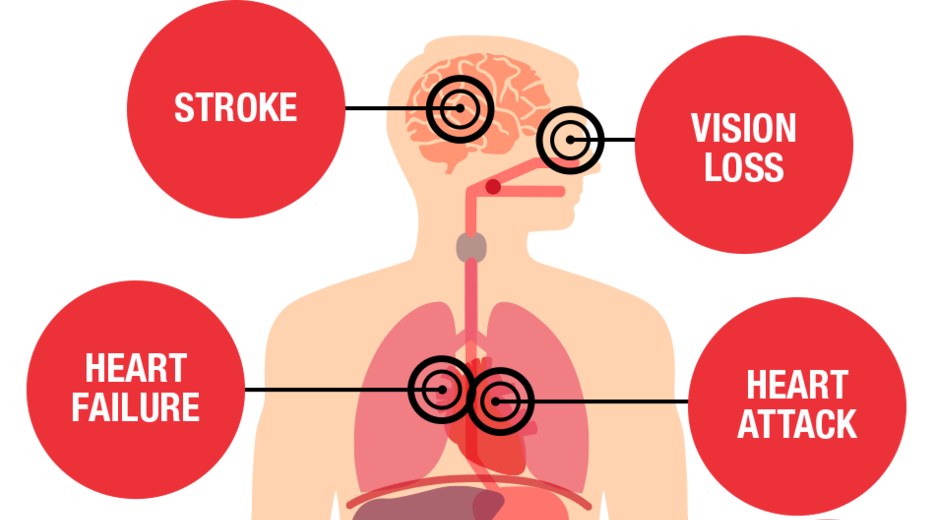In today’s fast-paced world, where stress levels are high and unhealthy eating habits are common, hypertension has become a common health issue among people of all ages. While many may think of hypertension as just a temporary problem that can be managed with medication, the truth is that the long-term effects of hypertension can be quite serious and even life-threatening. In this article, we will explore what hypertension is, its long-term effects on the body, and how you can prevent and manage this condition.
What is Hypertension?
Hypertension, also known as high blood pressure, is a condition in which the force of blood against the walls of your arteries is consistently too high. This puts extra strain on your heart and blood vessels, increasing your risk of heart disease, stroke, and other health problems. Hypertension is often referred to as the “silent killer” because it usually has no symptoms, but can cause serious damage to your body over time if left untreated.
Long-Term Effects of Hypertension
1. Heart Disease: Chronic hypertension can lead to a variety of heart problems, including coronary artery disease, heart failure, and even heart attacks. The constant pressure on the heart can weaken the muscle over time, making it less efficient at pumping blood throughout the body.
2. Stroke: High blood pressure is a leading cause of stroke, a serious condition that occurs when the blood supply to the brain is disrupted. Hypertension can cause blood vessels in the brain to weaken and narrow, increasing the risk of a potentially life-threatening stroke.
3. Kidney Damage: The kidneys play a crucial role in filtering waste and excess fluid from the body. When blood pressure is too high, it can cause damage to the delicate blood vessels in the kidneys, leading to kidney disease or even kidney failure.
4. Vision Problems: Hypertension can also affect the tiny blood vessels in the eyes, leading to vision problems such as retinopathy, a condition that can cause blindness if left untreated.
Prevention and Management
While hypertension is a serious health condition, the good news is that it can be prevented and managed with lifestyle changes and medication. Here are some tips to help you keep your blood pressure in check:
1. Eat a healthy diet rich in fruits, vegetables, whole grains, and lean proteins. Limit your intake of salt, sugar, and unhealthy fats.
2. Get regular exercise to help lower your blood pressure and improve your overall heart health.
3. Maintain a healthy weight by following a balanced diet and staying active.
4. Limit your alcohol intake and avoid smoking, as these can raise your blood pressure and increase your risk of heart disease.
5. Take prescribed medication as directed by your doctor to help control your blood pressure and reduce your risk of complications.
Conclusion
Understanding the long-term effects of hypertension is crucial for maintaining your overall health and well-being. By taking proactive steps to prevent and manage high blood pressure, you can reduce your risk of serious health problems and lead a longer, healthier life. Remember to consult with your healthcare provider regularly to monitor your blood pressure and make any necessary adjustments to your treatment plan. Your heart will thank you for it!
